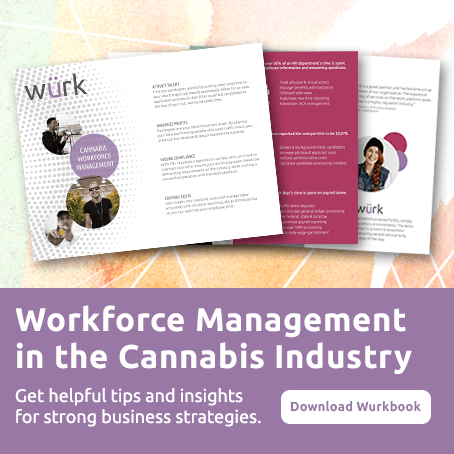When Your Bank Says “No” To Cannabis
It’s something many people take for granted: being able to open a bank account. In most cases, all you have to do is go to your chosen financial institution, fill out paperwork, and you can easily and safely manage your money. But as the owner of a cannabis company, you know a traditional bank account isn’t always an option. Cannabis banking is one of the many hurdles cannabis employers have to overcome.
Unfortunately, most national banks are FDIC-insured. As a federal organization, the FDIC follows federal laws over state laws. Since the national government still classifies cannabis as a schedule one drug, many national banks will not do business with companies in the industry out of fear of losing their FDIC insurance.
Left without a bank account, cannabis companies face a myriad of challenges from paying employees to accounting practices to 280E and tax compliance. While this is a frustrating situation, you do have options. By thoroughly understanding what the issues are and how to navigate them, you can grow your business in a compliant and less stressful way. Here are four things to consider when a national bank refuses to back your company:
1. Working with a smaller institution for your cannabis banking needs
While they aren’t as common as they once were, there are still state and local banks that don’t rely on FDIC insurance. This gives these financial institutions more freedom when taking on customers.
Yet, even if these financial institutions are willing to back companies in the cannabis industry, many aren’t finding the practice profitable. A bank makes money by loaning out customers’ money and then collecting interest on those loans. But, because of the high capital and liquidity requirements in the industry, banks must keep a larger pool of cannabis businesses’ money. That leaves them with less to loan out for profit.
For banks that are still willing to back cannabis companies, it’s a more work-intensive process. These financial institutions stay compliant with banking regulations by getting to know each customer so they can be sure nothing illegal is happening.
On the one hand, this is a great opportunity for cannabis companies. They can secure personalized banking services, which make it a lot easier to conduct business. However, these banks need to conduct regular and extensive check-ins with their cannabis customers to ensure compliance. This extra work results in higher fees that are passed onto you.
2. Staying ACA compliant
The Affordable Care Act (ACA) ensures that employees receive health care benefits if they work for a company with over 50 full-time employees. As a caring employer, you want to stay compliant with the ACA. There’s just one problem: insurance companies won’t take clients without a bank account.
If you are a cash-based business that hasn’t established a cannabis banking partner, know now that it is almost impossible to find a benefits carrier that takes cash payments. This means you need to be constantly aware of the size of your workforce. When you near 50 employees, come up with a strategy to slow the company’s growth. As a business owner, this is counter-intuitive. But legally, you’re left with few options.
Also, understand that this can hurt employee morale. If your team doesn’t understand the intricacies of the ACA, employees may think you’re denying them benefits because you don’t want to pay the extra costs.
Have a conversation with employees explaining what you have to do to remain compliant. Answer their questions and address concerns. It can also be helpful to find out what their health care costs are so you can raise the pay rate to help offset those costs.
3. Manually tracking cash payroll
Without a cannabis bank account, every aspect of your business is conducted in cash. This includes payroll. For cannabis companies, this creates two major issues.
First, you have to create a meticulous paper trail. Payroll and taxes go hand-in-hand. If you don’t have extensive documentation of what employees pay and tax contributions, your business risks high fines if there’s a tax audit.
Another major concern is safety. When employees are paid large amounts of cash on a regular schedule, it makes the company and its team targets for robbery. To minimize the risk of theft, you might want to consider changing when you pay employees. Let your team know when they’ll get their money, but make sure it’s not regular enough for thieves to discern the pattern. Another option is hiring extra security on payday. Having trained security professionals escort employees from the business to their cars gives everyone a better sense of security.
When it comes to paying the IRS in cash, we recommend reviewing their publication for best practices to submit tax funds.
4. Using an integrated system

Luckily, Wurk was built specifically for the cannabis industry. The platform makes it easier for non-bank-backed companies to track their finances while remaining compliant. Imagine having an automated system that eliminates human error. Taking advantage of such a tool will help you save time and reduce stress even if you don’t have a bank account.
In addition, many Wurk clients have been able to streamline and improve their reporting and compliance efforts, therefore improving their chances of securing strong cannabis banking partners as they grow. Still have questions about cannabis banking? Reach out to one of our experts today!


